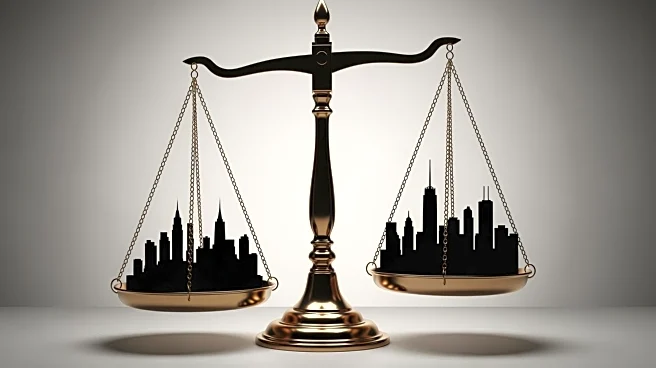What's Happening?
Democratic candidate Zohran Mamdani is participating in the New York City mayoral election, casting his vote at the Frank Sinatra School of the Arts High School in Astoria, Queens. Mamdani's campaign has been marked by ambitious promises, particularly
in housing, which critics argue could strain the city's budget. His housing plan is reportedly close to the entire city budget, raising questions about the feasibility of his proposals. The election is a pivotal moment for New Yorkers, as they face the prospect of significant changes in city governance and policy direction.
Why It's Important?
The election of Zohran Mamdani as mayor could have substantial implications for New York City's fiscal health and policy landscape. His ambitious housing plan, if implemented, might require reallocating significant city resources, potentially affecting other public services and infrastructure projects. This scenario underscores the broader challenge of balancing progressive policy goals with fiscal responsibility. Stakeholders, including city officials, residents, and business leaders, are closely monitoring the election outcome, as it could redefine priorities and impact economic stability in the city.
What's Next?
As the election unfolds, New Yorkers are awaiting the results to understand the future direction of city governance. If Mamdani wins, his administration will need to address the practicalities of implementing his housing plan without compromising other essential services. This may involve negotiations with city council members and adjustments to budget allocations. The election results will also likely prompt reactions from various political and community groups, influencing the city's political discourse and policy debates.
Beyond the Headlines
The potential election of Zohran Mamdani highlights broader themes in urban governance, such as the tension between progressive ideals and fiscal constraints. It raises ethical questions about the promises made during campaigns and the realistic expectations of voters. Additionally, it reflects a growing trend in major cities where candidates propose transformative changes, challenging traditional budgetary practices and governance models.















